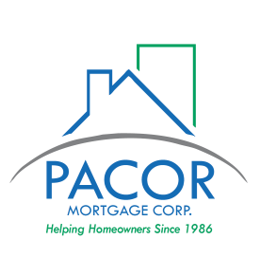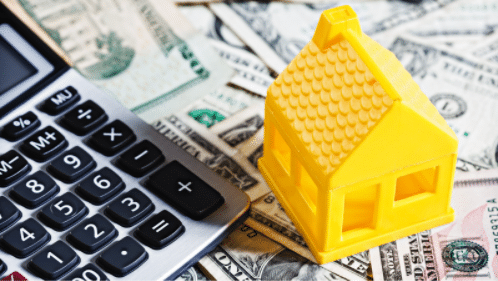Buying a home is an exciting milestone in your life. It’s an opportunity to put down roots and have a place you can finally call your own. But before you call a realtor, you need to establish a budget and ask yourself an important question: How much house can I afford?
While having a gourmet kitchen or large backyard is nice, if you can’t afford to pay the mortgage or have cash available to make home repairs, homeownership can go from a dream come true to a burden quickly.
Fortunately, determining how much house you can afford is simpler than you might think. Follow these tips from financial expert Dave Ramsey to help you buy a home without blowing your budget.
Crunch Some Numbers
How much house you can actually afford is based on your income. If you have a spouse or domestic partner, include their income in the equation. Additionally, both of you will want to be on the same page when it comes to budgeting and spending.
Determine monthly income. If you take home $2,500 monthly and your partner $3,500, your total monthly take-home pay is $6,000. Be sure to use your net or after-tax income, not your gross income.
Determine maximum monthly mortgage payment. The rule of thumb is that your monthly mortgage payment should be no more than 25% of your monthly income. With a monthly income of $6,000, your house payment should be $1,500 or less.
Use a mortgage calculator to determine your budget.
Our mortgage calculator provides a snapshot of how much house you can afford using different down payment amounts and house payment options. Based on a monthly income of $6,000 and a 15-year fixed-rate mortgage with 3% interest (today’s average rate), here are different affordability scenarios:
- $190,000 with a 10% down payment ($19,000)
- $222,000 with a 20% down payment ($44,400)
- $235,000 with a 25% down payment ($58,750)
Keep in mind these payments are just estimates. While they include monthly property taxes and homeowners insurance costs, these costs will vary depending on where you live and the value of your belongings. Additionally, if you buy a home that’s part of a homeowners association (HOA), you’ll need to include that cost as well.
Include homeownership costs.
As a renter, the costs of repairs, routine maintenance, and upgrades fall on your landlord. Once you buy a home, all those costs become your responsibility. When creating your budget, be sure to allocate funds for these added expenses. Expenses can include new appliances, ongoing repairs, and routine maintenance (i.e., HVAC tune-ups).
Maximize Your Down Payment
Unless you’re paying cash for your home, your down payment makes a sizable impact on how much home you can afford. The more money you can save up and put toward a home purchase, the less you’ll need to finance – resulting in a lower mortgage payment throughout the life of your loan. You’ll also save thousands of dollars in interest and fees.
Ideally, you should save up for a down payment that is at least 20% of the home purchase price so you can avoid paying private mortgage insurance (PMI). In most cases, PMI is required by the lender when you take out a conventional loan with a down payment of less than 20%. This insurance protects your mortgage lender if you don’t or are unable to make your monthly payments. The cost is usually one percent of the total loan value and is incorporated into your monthly payment. You may need to adjust your maximum home cost to accommodate PMI costs.
Budget for Closing Costs
In addition to your down payment, you’ll also need to save for closing costs which average 4% of the home’s purchase price. Your real estate agent or your lender will give you the exact amount of your closing costs so you can pay for them at closing. While it may seem like an added expense, closing costs cover essential aspects of the home buying process including credit reports, home inspections, appraisal fees, and homeowner’s insurance.
Remember that closing costs are a part of your overall budget. If your home’s purchase price is $222,000, your estimated closing cost is 4% of the purchase price or $8,880. Combined with your down payment of 20% ($44,400), you’ll need $53,280 in cash to purchase your home.
If you don’t have the additional funds for closing costs, consider delaying your home purchase until you have money saved up or lower your home purchase price. Closing costs shouldn’t prevent you from making the largest possible down payment. With some discipline and resourcefulness, you’ll be able to purchase a home you can truly afford and enjoy all the benefits of homeownership.
Looking to buy a home soon? Trust the experienced professionals at Pacor Mortgage. We can answer your questions and help you take advantage of today’s great mortgage rates. Give us a call today at 773-881-7744 to set up an appointment, or visit our website to learn more about our products and programs.
2021 Pacor Mortgage Corp. Pacor Mortgage Corp is located at 14930 Cicero Ave, Oak Forest, IL 60452, Phone 773-881-7744 (Unique Identifier #120945). For Licensing information, go to: www.nmlsconsumeraccess.org. Pacor Mortgage Corp is an equal housing lender and is licensed by the Secretary of State under the Illinois Residential Mortgage Lending Act and is assigned Illinois Residential Mortgage License MB.0000892. Pacor Mortgage Corp branches operate with the following licenses and is assigned Illinois Residential Mortgage License MB.0000892-001, with a Wisconsin License # 260345BA, Palos Heights NMLS 261297 and is assigned Illinois Residential Mortgage License MB.0000892-008, Colorado, Licensed by the Department of Business Oversight under the California Residential Mortgage Lending Act, California license # 41DBO-67516, Florida MLD1075, Indiana DFI 13177, Maryland 23528, Michigan FL0828, Michigan SR1130, Minnesota MN-MO-120945, North Carolina L-184546, Ohio RM.804151.000, Pennsylvania 43855, South Carolina, MLS – 120945, Wisconsin 120945BA, Kalamazoo, MI NMLS 120945 also DBA Lake Pacor Home Mortgage. This is not an offer for an extension of credit, a rate lock or a commitment to lend. All loans must satisfy company underwriting guidelines and any investor overlays. Any of the advertised products may be discontinued at any time. Information and pricing are subject to change at any time and without notice. Loans are being committed and closed at expressed rates although these rates change and may not be available at time of your lock in, commitment and / or closing. Pacor Mortgage Corp is not affiliated with your current lender, nor is it an agency or extension of the Federal Government, Fannie Mae, Freddie Mac or HUD.

